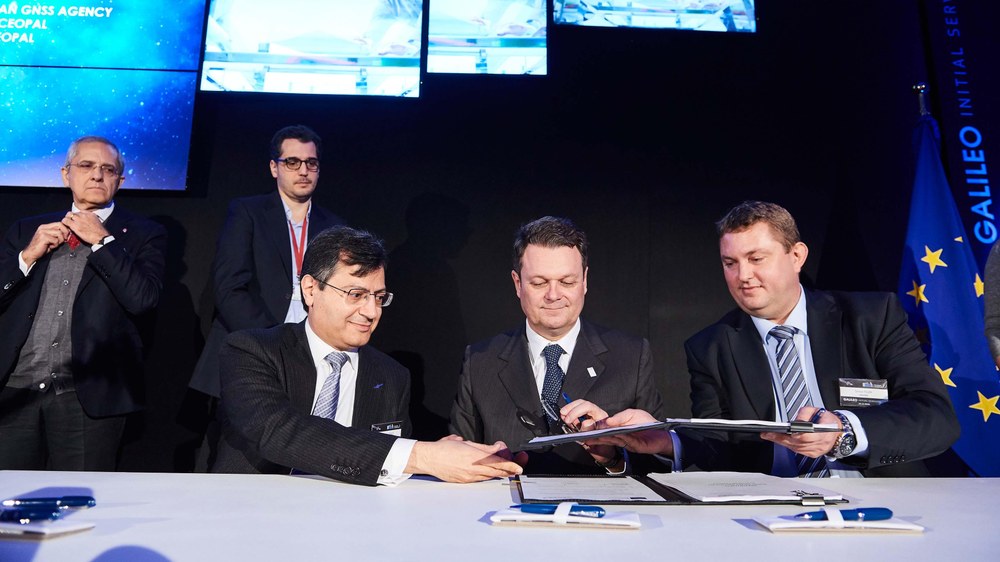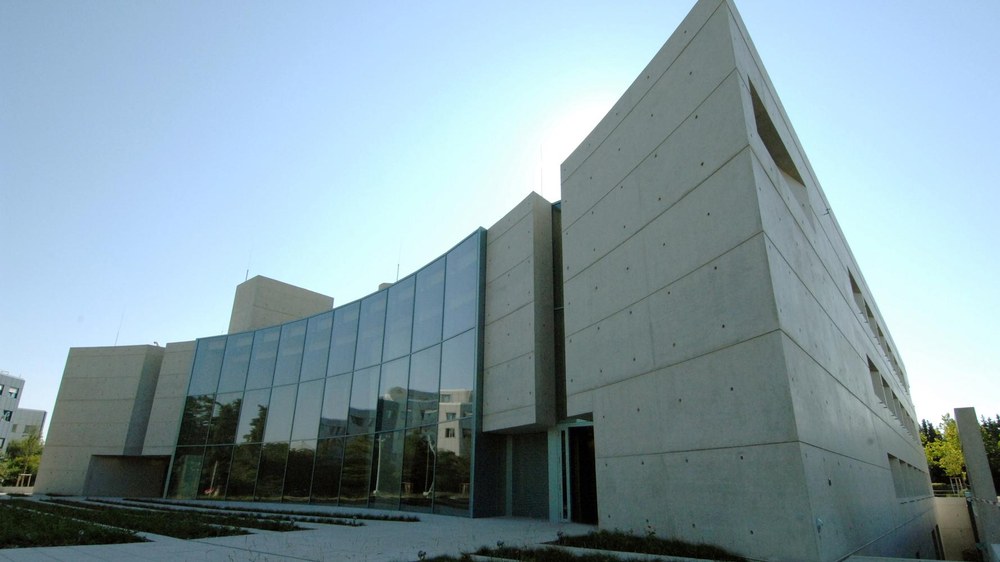Spaceopal remains in charge of overall Galileo operations for another 10 years


Brussels – The European satellite navigation system Galileo took another step toward future routine operations on 15 December 2016. Acting on behalf of the European Commission, the European GNSS Agency (GSA) has assigned the responsibility for operating Galileo in the next 10 years to the firm Spaceopal from Munich. The contract was signed on this day in Brussels.
Spaceopal is a joint venture between DLR GfR mbH, a full subsidiary of the German Aerospace Center (Deutsches Zentrum für Luft- und Raumfahrt; DLR), and the Italian firm Telespazio S.p.A. Both parties contribute their respective Galileo Control Centers in Oberpfaffenhofen and Fucino. Attending the contractual signing, Hansjörg Dittus, DLR Executive Board Member for Space Research and Technology, comments: "In this way, we will safeguard the stability and continuity for operating the Galileo system and hence the provision of important navigation and time services, now and in the future. At the same time, we will be able to expand our competencies in the area of satellite navigation, contributing significantly to the system's ongoing development, the services provided and the user technologies." He adds: "Combined with DLR's scientific excellence, we are therefore placing our reliable work in the service. We perceive this contract as a confirmation of the successful and dedicated work of our team over the last five years, whom I would like to thank."
GSA organised a Europe-wide tender for the awarding of this operating contract. "We faced very strong competitors, but of course we are delighted and proud by this expression of trust", reports the German Managing Director of Spaceopal GmbH, Simon Plum. "The last five years have been a real challenge. In addition to the two-year tender procedure, we have also supported five launch procedures for a total of 12 new satellites, integrated innumerable upgrades in the Galileo system, and have prepared for Galileo's initial services."
Peculiarities of Galileo operations
Operating a satellite navigation system is extraordinarily complex and an immense challenge for Europe. To manage these tasks, Spaceopal therefore trusts in the experience it has acquired in recent years and in a competent industrial team comprising a number of prestigious European companies, in addition to its own partners. Close operational interaction between what will soon be 30 satellites orbiting Earth, integration of the global antenna locations, and user support are the particular challenges associated with Galileo.
For security reasons, operations are divided between the two control centres in Oberpfaffenhofen near Munich and Fucino in Italy. Oberpfaffenhofen carries particular responsibility for controlling the satellites, while Fucino concentrates mainly on processing the navigational data.
A watchful eye on the satellites
DLR GfR is a company providing reliable, safe and secure aerospace services. DLR GfR mbH operates and manages the constellation of Galileo satellites from the Galileo Control Center in Oberpfaffenhofen/Germany. "DLR GfR is delighted to be able to continue operating the Galileo satellite constellation, whose first satellites were placed in orbit around the Earth in 2011 at a distance of approximately 23,000 kilometres. Operating Galileo includes adhering to the strict requirements of reliability and security. Our experienced operating and maintenance team stands firmly behind this important task," says Walter Päffgen, Managing Director at DLR GfR mbH.
Background information on GSA
The European Agency for GNSS (GSA) supports the European Commission in tasks relating to the establishment and operation of a global navigation satellite system (GNSS). It is responsible for market introduction in all application areas. Located in Prague, GSA has been tasked by the European Commission with planning the operational phase of the European satellite navigation system Galileo. GSA is also responsible for marketing and for the profit phase.
Background information on Galileo
The European Commission's Galileo 'lighthouse' project will allow Europe to become independent of the GPS (USA), GLONASS (Russia) and Beidou (China) navigation services, each of which is under military control. Galileo is an independent satellite navigation system for civilian purposes. It will guarantee that navigation signals are available at all times. With 30 satellites, Galileo is able to deliver positional data that is more precise than GPS – at any point on Earth and at any time.
Another four Galileo satellites took off from the spaceport in Kourou (French Guinea) on board an Ariane 5 launch vehicle on 17 November 2016. The satellite constellation has therefore reached a size that will allow a roll-out of Galileo's initial services.

